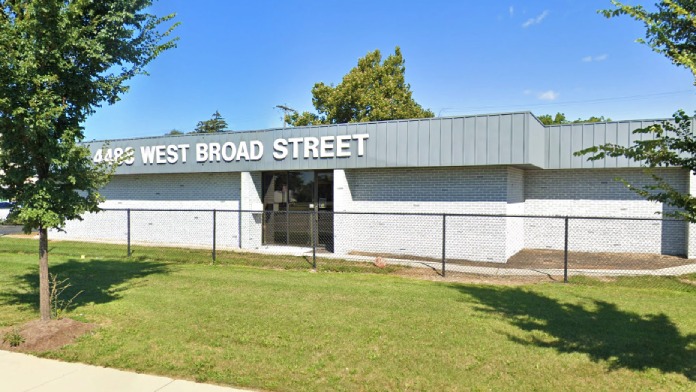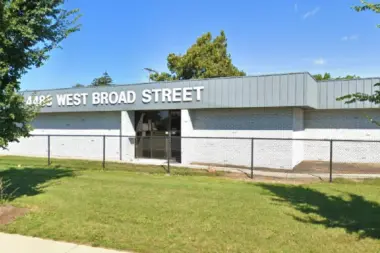About Clean Slate Centers – Dayton, OH
CleanSlate Centers – Dayton, OH provides outpatient medication assisted treatment (MAT) for adults struggling with opioid use disorders (OUD) and alcohol use disorders (AUD). MAT uses medication alongside counseling to encourage lasting recovery. Combining meds and behavioral therapy heals the whole person, not just the addictive disease. CleanSlate’s approach can also help you recover from dually diagnosed substance use and mental health issues. They’re located five miles southeast of downtown Dayton in the former UCR building near the intersection of Linden and Woodman. You can pay for your treatment through Medicaid and Medicare. They are also in network with most health insurance plans.
You can expect to be treated with dignity, compassion and respect during your recovery here. They prioritize individualized treatment to deliver the best outcomes. They may prescribe Suboxone or naltrexone as part of your individualized treatment. This curbs cravings and significantly reduces withdrawal symptoms. This is backed up with counseling to help you sort out the underlying emotions driving your opioid use.
They offer both in-person and telehealth outpatient counseling. This grants you a great deal of freedom and convenience during recovery.
CleanSlate provides specialized treatment to pregnant women. This includes OUD support to facilitate both maternal health and safe fetal development.
If you’re like many people and have abused multiple substances, CleanSlate can help you achieve sustainable recovery through poly-substance treatment. They also provide Hepatitis C screening and treatment. This is especially important for individuals who share needles and other paraphernalia, as they have a higher risk of contracting the virus.
Care coordination is a vital component of the broader recovery program here. Part of this involves linkage to community resources that support your ongoing recovery efforts. These include safe housing, job placement as well as food and transportation assistance. They may offer ongoing support after your treatment as well.
Latest Reviews
Rehab Score
Gallery


Accepted Insurance

Other Forms of Payment
Self-pay involves paying for treatment out of your own pocket. You can use savings or credit, get a personal loan, or receive help from family and friends to fund your treatment. If you don't have insurance or your insurance plan doesn't cover a specific program, self-pay can help ensure you still get the care you need.
Private insurance refers to any kind of healthcare coverage that isn't from the state or federal government. This includes individual and family plans offered by an employer or purchased from the Insurance Marketplace. Every plan will have different requirements and out of pocket costs so be sure to get the full details before you start treatment.
Medicaid is a state based program that helps lower-income individuals and families pay for healthcare. Medicaid covers addiction treatment so those enrolled can use their coverage to pay for rehab. When a program accepts Medicaid the client often pays very little or nothing out of their own pocket.
Medicare is a federal program that provides health insurance for those 65 and older. It also serves people under 65 with chronic and disabling health challenges. To use Medicare for addiction treatment you need to find a program that accepts Medicare and is in network with your plan. Out of pocket costs and preauthorization requirements vary, so always check with your provider.
Military members, veterans, and eligible dependents have access to specific insurance programs that help them get the care they need. TRICARE and VA insurance can help you access low cost or no cost addiction and mental health treatment. Programs that accept military insurance often have targeted treatment focused on the unique challenges military members, veterans, and their families face.
Addiction Treatments
Levels of Care
Outpatient Programs (OP) are for those seeking mental rehab or drug rehab, but who also stay at home every night. The main difference between outpatient treatment (OP) and intensive outpatient treatment (IOP) lies in the amount of hours the patient spends at the facility. Most of the time an outpatient program is designed for someone who has completed an inpatient stay and is looking to continue their growth in recovery. Outpatient is not meant to be the starting point, it is commonly referred to as aftercare.
Medical detox involves clearing your body of drugs and/or alcohol under the 24/7 care of licensed medical professionals. If you've become dependent on alcohol or drugs (like benzodiazepines or opioids), quitting abruptly can have uncomfortable and even dangerous side effects. The purpose of medically assisted detox is to keep you as safe and comfortable as possible during this process. Medications like Suboxone or Vivitrol may be provided if necessary to mitigate any withdrawal symptoms.
Programs
Adult rehab programs include therapies tailored to each client's specific needs, goals, and recovery progress. They are tailored to the specific challenges adult clients may face, including family and work pressures and commitments. From inpatient and residential treatment to various levels of outpatient services, there are many options available. Some facilities also help adults work through co-occurring conditions, like anxiety, that can accompany addiction.
Young adulthood can be an exciting, yet difficult, time of transition. Individuals in their late teens to mid-20s face unique stressors related to school, jobs, families, and social circles, which can lead to a rise in substance use. Rehab centers with dedicated young adult programs will include activities and amenities that cater to this age group, with an emphasis on specialized counseling, peer socialization, and ongoing aftercare.
Recovery is most successful when clients feel accepted and validated by their peers and treatment providers. Facilities that offer LGBTQ-inclusive programming are committed to creating a safe space where everyone can grow and recover without fear of judgment or discrimination. They will have dedicated policies in place to create a safe and supportive environment that fosters free expression.
Serving in the military is both mentally and physically challenging, and can result in trauma that persists even after combat ends. Military programs are tailored to the specific and often complex needs of active duty personnel, veterans, and military families. Clients often access these programs through the U.S. Department of Veterans Affairs (VA).
Clinical Services
Therapists who apply motivational interviewing in Ohio don't try to confront clients or force advice onto them. Instead, they listen and come alongside clients to help them explore why and how they might decide to make changes for themselves.
Accreditations

The Commission on Accreditation of Rehabilitation Facilities (CARF) is a non-profit organization that specifically accredits rehab organizations. Founded in 1966, CARF's, mission is to help service providers like rehab facilities maintain high standards of care.
CARF Accreditation: Yes
Contact Information
1332 Woodman Dr
Dayton, OH 45432







